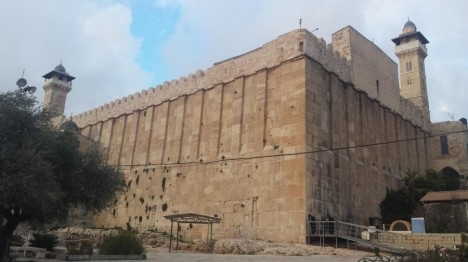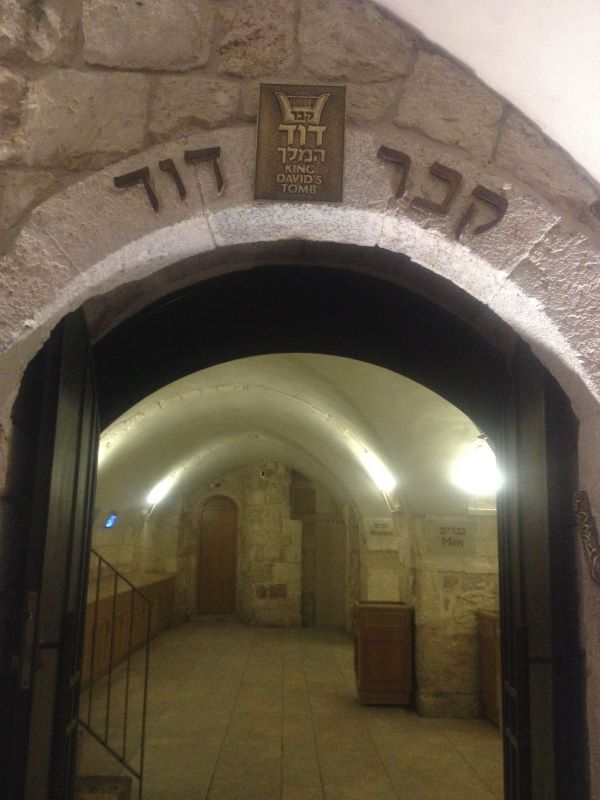Shavuot is the festival of giving (and receiving) the Torah. The Hebrew word itself means weeks, the number seven, and vows. Indeed, we celebrate this holiday seven weeks after the first night of Pesaḥ (Passover). During the event of receiving the Torah, the People of Israel also took a vow: Na-aseh V’nishmah – We Shall Do and We Shall Hear. Pesaḥ is considered the festive of redemption – physical liberation from slavery. Shavuot and receiving the Torah is considered the spiritual redemption, a revelation. For Shavuot of 2023 I was asked to talk about revelation, be it personal or Biblical. My own revelation relates to the concept of “gathering to ancestors”. It is very personal and yet deeply rooted in Tanakh.
Let me start with a few quotes from Torah that tell what happened to our Forefathers. In the translations, I took some liberty to add a few words that will provide better context to the text:
Genesis 25:8-9:
Avraham breathed his last, dying at a ripe age, old and content; he was gathered to his ancestors [kin]. His sons Itzḥak and Yishma-el buried him in the cave of Makhpelah…
וַיִּגְוַ֨ע וַיָּ֧מָת אַבְרָהָ֛ם בְּשֵׂיבָ֥ה טוֹבָ֖ה זָקֵ֣ן וְשָׂבֵ֑עַ וַיֵּאָ֖סֶף אֶל עַמָּֽיו׃ וַיִּקְבְּר֨וּ אֹת֜וֹ יִצְחָ֤ק וְיִשְׁמָעֵאל֙ בָּנָ֔יו אֶל מְעָרַ֖ת הַמַּכְפֵּלָ֑ה אֶל שְׂדֵ֞ה עֶפְרֹ֤ן בֶּן צֹ֙חַר֙ הַֽחִתִּ֔י אֲשֶׁ֖ר עַל־פְּנֵ֥י מַמְרֵֽא׃
Genesis 35:29:
Itzḥak breathed his last and died, and was gathered to his ancestors [kin] in a ripe old age; Esav and Yaakov his sons buried him [in the cave of Makhpelah].
וַיִּגְוַ֨ע יִצְחָ֤ק וַיָּ֙מָת֙ וַיֵּאָ֣סֶף אֶל עַמָּ֔יו זָקֵ֖ן וּשְׂבַ֣ע יָמִ֑ים וַיִּקְבְּר֣וּ אֹת֔וֹ עֵשָׂ֥ו וְיַעֲקֹ֖ב בָּנָֽיו׃
Genesis 49:29, 31:
[Yaakov] commanded [his sons] saying to them: “I am about to be gathered to my ancestors [kin]; bury me with my Fathers in the cave [of Makhpelah]… There Avraham and his wife Sarah were buried, there Itzḥak and his wife Rivkah were buried; and there I buried Leah.
וַיְצַ֣ו אוֹתָ֗ם וַיֹּ֤אמֶר אֲלֵהֶם֙ אֲנִי֙ נֶאֱסָ֣ף אֶל עַמִּ֔י קִבְר֥וּ אֹתִ֖י אֶל אֲבֹתָ֑י אֶל הַ֨מְּעָרָ֔ה אֲשֶׁ֥ר בִּשְׂדֵ֖ה עֶפְר֥וֹן הַֽחִתִּֽי׃ שָׁ֣מָּה קָֽבְר֞וּ אֶת אַבְרָהָ֗ם וְאֵת֙ שָׂרָ֣ה אִשְׁתּ֔וֹ שָׁ֚מָּה קָבְר֣וּ אֶת יִצְחָ֔ק וְאֵ֖ת רִבְקָ֣ה אִשְׁתּ֑וֹ וְשָׁ֥מָּה קָבַ֖רְתִּי אֶת לֵאָֽה׃

Moving forward several hundred years, we read about King David and his son Shlomo:
Kings I, 2:10:
[King] David laid to rest with his fathers, and he was buried in the City of David.
וַיִּשְׁכַּ֥ב דָּוִ֖ד עִם אֲבֹתָ֑יו וַיִּקָּבֵ֖ר בְּעִ֥יר דָּוִֽד׃
Kings I, 11:43:
Shlomo laid to rest with his fathers and was buried in the City of David his father;
וַיִּשְׁכַּ֤ב שְׁלֹמֹה֙ עִם אֲבֹתָ֔יו וַיִּ֨קָּבֵ֔ר בְּעִ֖יר דָּוִ֣ד אָבִ֑יו
According to tradition, King David laid to rest on Shavuot. This notion adds another layer of relevancy to talk about this subject during Shavuot…
The very same phrase is used further in the books of Kings and in Chronicles to describe the death and burial of the People of Israel in biblical times.

Archeological evidence to this common practice was found in Beit She’arim necropolis, in which the biblical-described method of burials was implemented.
Gathering to Ancestors, Today in Israel
In Israel, burials are handled and controlled by the various religious establishments, by law. For the Jewish population it is the various local Ḥevra Kadisha that operate under the direction and supervision of the Chief Rabbinate. Recently I have learned that today, it is possible for one to be buried together with one’s ancestors in the very same grave; thus, returning to the ancient burial method that I have just quoted from Tanakh.
This opened for me the possibility to return to my “Beit Abba”, the home of my parents: the place where I was born and raised, the time of my childhood and youth. Back to my homeland, where and from whom I learned and matured to be what I am.
My hope is that when time comes, I will also be able to lay to rest with my parents, next to my grandparents and brothers, in Eretz Israel.
Maybe we can start following the very same ancient tradition. Be it because of the practical reason of the diminishing availability of burial plots in our communities, or be it for the spiritual aspect of coming back home for eternity and reuniting with one’s family. Allowing the first-in-kin of deceased loved one to lay to eternal rest with one’s ancestors may provide peace of mind and heart, as it does to me.

